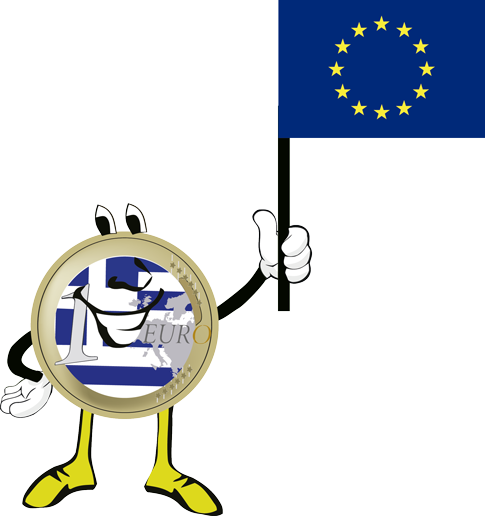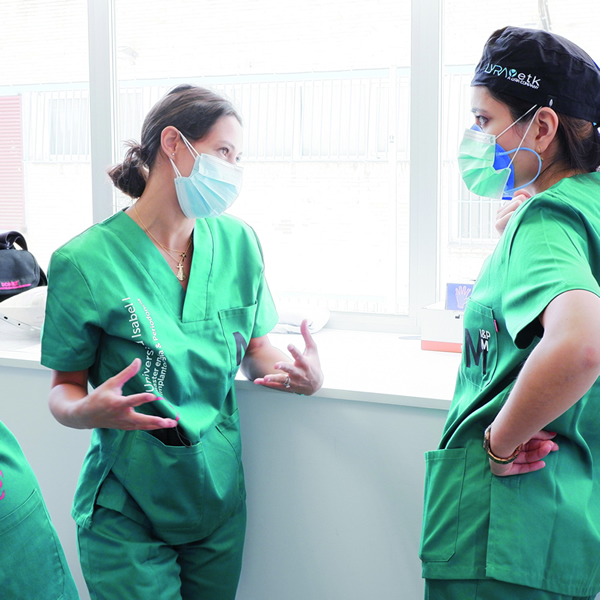ÁMBITO EUROPEO
Hace tiempo que la Unión Europea dejó de ser una comunidad meramente económica para ser también una entidad política y humana de primer orden, en la que la economía no es el fin, sino solo un medio. En este sentido, la economía social de mercado ejemplifica a la perfección la ambición del proyecto europeo subrayando los valores consagrados en el Tratado de la Unión Europea: respeto a la dignidad humana, libertad, democracia e igualdad y solidaridad entre otros.
Es innegable que la pandemia de la COVID-19 nos ha obligado a reflexionar sobre muchas cosas y entre ellas, los peligros de una brecha social en aumento. Europa ha respondido con firmeza a esta emergencia con un ingente esfuerzo financiero y esta vez no ha olvidado que la política social tiene que ocupar una plaza de relieve en el esfuerzo por la recuperación, gracias en particular, al trabajo realizado por el equipo negociador del Parlamento Europeo. En efecto, el Plan Europeo de Recuperación contiene, junto a la dimensión ambiental y la digital, una dimensión social indispensable, ya que el cambio climático y la modernización de la economía no pueden disociarse de la justicia social y de la lucha contra las desigualdades.
Este Plan Europeo de Recuperación -sin parangón ni por su cuantía ni por su estructura fiscal- es un ejemplo de como la protección y el fomento de una economía social es clave a la hora de diseñar cualquier proyecto europeo. Pero hay muchos más, como la componente que acompaña el Pacto Verde europeo, encabezada por el Fondo Climático Social, cuya propuesta están discutiendo las comisiones de Empleo y Medio Ambiente del Parlamento Europeo, para asegurar que nadie se queda atrás en la llamada transición verde.
Estas medidas no nacen de manera aislada, sino en un marco predeterminado. Cualquier acción que decida poner en marcha la Unión Europea ha de tener cabida en su presupuesto ordinario, el llamado marco financiero plurianual 2021-2027 o en el plan de recuperación de 750.000 millones de euros creado para luchar contra las consecuencias de la pandemia. El componente social del segundo sigue en realidad la pauta del primero, en el cual ya se aumentaron de forma sustancial las partidas destinadas al fomento de una economía social. Un incremento logrado gracias a la determinación del equipo negociador del Parlamento Europeo que no cesó de defender la importancia de poner a las personas en el centro hasta conseguir un acuerdo con el Consejo.
Hasta 15.000 millones de euros suplementarios consiguió el equipo negociador del Parlamento para partidas clave a través de programas como Erasmus Plus, EU4Health, Horizon Europe, Invest EU o Creative Europe, entre otros.
Gracias a los recursos que proporciona el marco plurianual 2021-2027, la Comisión Europea presentó en diciembre el Plan de Acción para la Economía Social que el Parlamento Europeo está actualmente examinando en su comisión de Empleo. El ponente del informe, Jordi Cañas, ya ha manifestado la voluntad del Parlamento de otorgar a la economía social la visibilidad que merece, exprimiendo su potencial para contribuir a los objetivos de mayor bienestar, prosperidad, justicia, inclusión y respeto al medioambiente.
La propuesta se centra en la creación de un entorno para que la economía social prospere, con marcos jurídicos y políticas adecuadas, así como un conjunto de recomendaciones sobre los marcos fiscales, facilitación del acceso a las ayudas y buenas prácticas en materia de contratación pública socialmente responsable. Este apoyo al desarrollo debe ayudar a que las entidades inicien su actividad y se expandan. Por eso, en términos de financiación, la propuesta plantea aumentar la ayuda a estos agentes económicos, superando los 2.500 millones de euros asignados en el periodo anterior (2014-2020).
El desarrollo de la economía social debe producirse desde la inclusión plena de los agentes sociales y de los ciudadanos. Con esta perspectiva, la comisión de Empleo del Parlamento Europeo lleva a cabo audiciones con entidades sociales y académicos expertos, un diálogo útil a la hora de elaborar sus propias recomendaciones.
Cómo evolucionará este sector en los próximos años podría depender también de las conclusiones a las que llegue la Conferencia sobre el Futuro de Europa. Uno de los paneles en los que participan dos centenares de ciudadanos discute propuestas y recomendaciones en relación con el futuro de la economía y del empleo, prestando atención a la justicia social. Todavía no sabemos a ciencia cierta en qué manera las instituciones europeas transformarán esas recomendaciones en propuestas oficiales de la Conferencia, pero en todo caso el Parlamento ha sido claro desde el inicio en su voluntad de integrar sus conclusiones en el trabajo legislativo de la institución.
Las lecciones aprendidas de la crisis económica de 2010 y de la pandemia de COVID-19, la segunda mucho mejor resuelta que la primera, son en todo caso un potente acicate para el desarrollo de esa economía social que está presente en la concepción inicial del proyecto europeo.
The European Union has long since moved on from being a purely economic community, becoming also a leading political and human entity, for which the economy is not the end, but only a means. In this regard, the social market economy perfectly exemplifies the ambition of the European project by emphasising the values enshrined in the Treaty on European Union: respect for human dignity, freedom, democracy, equality and solidarity, among others.
It is undeniable that the COVID-19 pandemic has forced us to reflect on many things, including the dangers of a growing social divide. Europe has responded robustly to this emergency with a huge financial effort, this time without neglecting the fact that social policy must play a prominent role in the recovery effort, thanks in particular to the efforts of the European Parliament’s negotiating team. Alongside environmental and digital dimensions, the European Recovery Plan contains an indispensable social dimension, since climate change and the modernisation of the economy cannot be separated from social justice and the fight against inequalities.
This European Recovery Plan -unprecedented in terms of both scale and fiscal structure- is an example of how the protection and promotion of a social economy is vital to the design of any European project. But there are many more aspects, such as the component accompanying the European Green Deal, spearheaded by the Social Climate Fund, the proposal for which is being discussed by the European Parliament’s Committees on Employment and the Environment, to ensure that no one is left behind in the so-called green transition.
These measures are not created in isolation, but within a predetermined framework. Any action that the European Union chooses to take must be accommodated by its regular budget, known as the Multiannual Financial Framework 2021-2027, or by the €750 billion recovery plan created to combat the consequences of the pandemic. The social component of the latter in fact follows the pattern of the former, in which the budgetary allocations to promote a social economy have already been substantially expanded. An increase achieved thanks to the determination of the European Parliament’s negotiating team, which constantly argued for the importance of placing people centre-stage, until an agreement was reached with the Council.
Up to an additional €15 billion was secured by Parliament’s negotiating team for key items through programmes such as Erasmus Plus, EU4Health, Horizon Europe, Invest EU and Creative Europe.
Thanks to the resources provided by the multiannual framework 2021-2027, in December the European Commission presented the Action Plan for the Social Economy, currently being examined by the European Parliament’s Committee on Employment. The rapporteur for the report, Jordi Cañas, has already expressed Parliament’s willingness to give the social economy the visibility it deserves, making the very most of its potential to contribute to the goals of greater well-being, prosperity, justice, inclusion and respect for the environment.
The proposal focuses on creating an environment for the social economy to thrive, with appropriate legal and policy frameworks, as well as a set of recommendations on fiscal frameworks, facilitating access to grants and good practices in socially responsible public procurement. This development support should help institutions to begin and expand their operations. In terms of funding, then, the proposal plans to increase support for these economic operators, surpassing the €2.5 billion allocated in the previous period (2014-2020).
The development of the social economy must take place by fully including social agents and citizens. With this in mind, the European Parliament’s Committee on Employment conducts hearings with expert social and academic bodies, serving as a useful dialogue when drawing up its own recommendations.
How this sector develops in the coming years could also depend on the conclusions reached by the Conference on the Future of Europe. One panel involving two hundred citizens is discussing proposals and recommendations regarding the future of the economy and employment, and addressing social justice. We do not yet know for sure how the European institutions will turn these recommendations into official proposals of the Conference, but Parliament has in any event been quite clear from the outset as to its wish to integrate its conclusions into the institution’s legislative efforts.
The lessons learned from the 2010 economic crisis and the Covid-19 pandemic, the second much better resolved than the first, are in any case a powerful incentive for the development of the social economy contained within the initial conception of the European project.










 A pesar de las dudas, la Comisión Europea presentó su propuesta en marzo. Apenas dos meses más tarde, los negociadores del Consejo (que agrupa a los Estados miembros) y del Parlamento Europeo llegaron a un acuerdo sobre los detalles de este documento, que acreditará quién ha sido vacunado, superado la enfermedad o una prueba covid.
A pesar de las dudas, la Comisión Europea presentó su propuesta en marzo. Apenas dos meses más tarde, los negociadores del Consejo (que agrupa a los Estados miembros) y del Parlamento Europeo llegaron a un acuerdo sobre los detalles de este documento, que acreditará quién ha sido vacunado, superado la enfermedad o una prueba covid. Solo contendrá la información imprescindible, como el nombre, la fecha de nacimiento, el emisor del certificado y un identificador único vinculado a este último. En el caso de vacunación, el certificado informará sobre el tipo de vacuna y su fabricante, el número de dosis administradas y la fecha de vacunación. En el caso de certificado de diagnóstico, el documento detallará el tipo de prueba diagnóstica, la fecha y la hora de su realización, el lugar y el resultado. Si se trata de un certificado de recuperación, informará sobre la fecha del resultado positivo de la prueba de diagnóstico y el período de validez.
Solo contendrá la información imprescindible, como el nombre, la fecha de nacimiento, el emisor del certificado y un identificador único vinculado a este último. En el caso de vacunación, el certificado informará sobre el tipo de vacuna y su fabricante, el número de dosis administradas y la fecha de vacunación. En el caso de certificado de diagnóstico, el documento detallará el tipo de prueba diagnóstica, la fecha y la hora de su realización, el lugar y el resultado. Si se trata de un certificado de recuperación, informará sobre la fecha del resultado positivo de la prueba de diagnóstico y el período de validez.